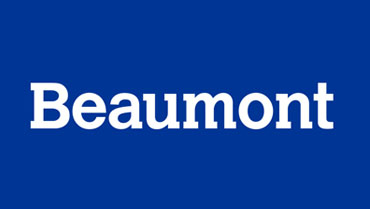Tuesday, October 19, 2021
Beaumont 1st to offer innovative, minimally invasive BPH treatment in SE Michigan
Scott Callison, 60, of Novi, says before undergoing a new, minimally invasive prostate procedure, he woke up every night at about 3:30 a.m. to urinate. And, when he did empty his bladder, urine came trickling out. “It came out like a leaky faucet,” said Callison.
Now, after getting a temporary implant treatment in August, called iTind, he’s sleeping through most nights and has discontinued taking one of his prostate medications. And, best of all, Callison said the procedure has turned his “leaky faucet into a garden hose,” providing faster relief and a better quality of life.
Callison was referred to urologist Dr. Kenneth Kernen at Beaumont Health. *Dr. Kernen, chief of Urology, Beaumont Hospital, Troy, was one of the first physicians in the country to perform the new iTind procedure to manage a patient’s BPH, or Benign Prostastic Hyperplasia, symptoms. Beaumont Health was the first to offer the minimally invasive, temporary implant, to treat enlarged prostates in Southeast Michigan.
Callison’s temporary implant procedure, performed by Dr. Kernen, was done on a Friday, and he was back to work on the following Monday. On Wednesday, the device was removed.
“The five-minute procedure involves the temporary placement of an implant. It can be done on an outpatient basis,” explained Dr. Kernen. “It’s another treatment option for many men with an enlarged prostate. In most cases, the implant is removed in five days. The new procedure has many benefits, including a quicker recovery time, less discomfort, no catheter and it preserves sexual function.”
The temporary implant expands and reshapes the patient’s prostate. It slowly expands and exerts gentle pressure at three precise points to reshape the prostatic urethra and bladder neck. After five to seven days, the device is completely removed, leaving a wider opening through which urine can flow, and to relieve the symptoms of BPH.
Added Dr. Kernen, “The new, temporary implantable device is an alternative to medications, surgery and permanent implants. Also, the minimally invasive procedure does allow other future treatment options.”
Benign Prostastic Hyperplasia, or BPH, is the most common condition in aging men: an enlarged prostate. It results in discomfort, a frequent/urgent need to urinate and an inability to empty one’s bladder. It can also lead to urinary tract, bladder and kidney problems. Most men, 8 out of 10, will experience BPH in their lifetime. BPH’s many symptoms can diminish a man’s quality of life.
Treatments for an enlarged prostate:
- lifestyle changes
- medications
- minimally invasive procedures
- surgery
Before the procedure, Callison was on a prostate medication, but it made him feel light-headed. Now, he no longer needs that medication.
“I did not want a permanent implant,” said Callison. “This new treatment was definitely worth it.”
*Dr. Kenneth Kernen is a paid consultant with Olympus Medical Systems which markets and distributes iTind. This news release is for informational purposes only and is not / does not constitute an endorsement by Beaumont Health.

